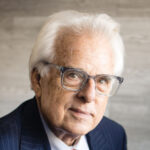The logic of assisted suicide pushes with the force of gravity to virtual death-on-demand. It starts with advocacy for allowing doctor-prescribed suicide for the imminently terminally ill for whom — supposedly — nothing else can be done to alleviate suffering. But that’s only a key that opens the door — and indeed, as we have seen in Oregon and Washington, the requirement of actual and measurable suffering that cannot be controlled never actually applies.
Once society widely accepts killing as an acceptable answer in some cases of suffering, the cultural tumor metastasizes to include people with chronic conditions, disabilities, mental illnesses, and even, the elderly who are tired of life — as we have seen in the Netherlands and Belgium. In Belgium, they have even given society a utilitarian stake in killing the expensive for whom to care by coupling lethal jabs with organ harvesting.
Now, in Switzerland, fear of future suffering becomes the a justifiable cause for assisted suicide, as a man with early Alzheimer’s was accepted for a one-way death trip to Switzerland. From the BMJ story:
An 83 year old man has become the first known Briton to have ended his life at the Dignitas assisted suicide centre in Switzerland because he was diagnosed with dementia. The professional man, who was in the early stages of the condition, travelled to Zurich with his wife in March, but his death has only now been made public. Michael Irwin, a retired general practitioner and campaigner for the legalisation of doctor assisted suicide in the United Kingdom, told the BMJ that he had asked a psychiatrist friend to assess the man to ensure that he was mentally competent to take the decision, a Dignitas requirement. He said: “He was an 83 year old man who knew very well all the implications of what dementia would mean for him and his family . . .”
See how the inside game works? Euthanasia advocates approve the opinions of other euthanasia activists.
Also, what if doctors come up with a treatment for Alzheimer’s in the next five years? They’re working on it. If they do, this poor chap will not be around to benefit.
I saw that very phenomenon with AIDS in San Francisco in the 1990s. AIDS was a catastrophe at the time. You couldn’t walk down the street without seeing the tragedy playing out in real time.
AIDS activists developed an assisted suicide culture by which the afflicted killed themselves in the presence — and with the support of — their friends. I argued and debated publicly against the practice, sometimes against the doctors who were facilitating the deaths. Then, the drug treatment suddenly came on line and people — literally on the brink of a very difficult death — came back to full vitality. But not everyone who would have lived took advantage of the breakthrough — because they were already dead by assisted suicide!
People were aghast at those suicides, right? And those who gave moral support were publicly repentant that they had supported people in their dying who might have gone on to live. I wish. All I noticed was collective shrug.
It is striking how few people care that people died who might have lived or that people died even though good times were still to be had. The real fault, I think, is that Western society is swimming in nihilism. If so, euthanasia is a symptom, not a cause. As the Canadian journalist wrote about the support Robert Latimer received after he murdered his disabled daughter:
A society that believes in nothing can offer no argument even against death. A culture that has lost its faith in life cannot comprehend why it should be endured.
Author Profile

Latest entries
- BlogJanuary 27, 2015Ready or Not: Here Comes 2015 in Bioethics!
- BlogOctober 20, 2014A Case of Surrogacy’s Gordian Knot
 BlogAugust 19, 2014Transhumanism’s Eugenic Authoritarianism
BlogAugust 19, 2014Transhumanism’s Eugenic Authoritarianism- BlogAugust 13, 2014Suicide Cult Pushes Home Made Suicide Kits

